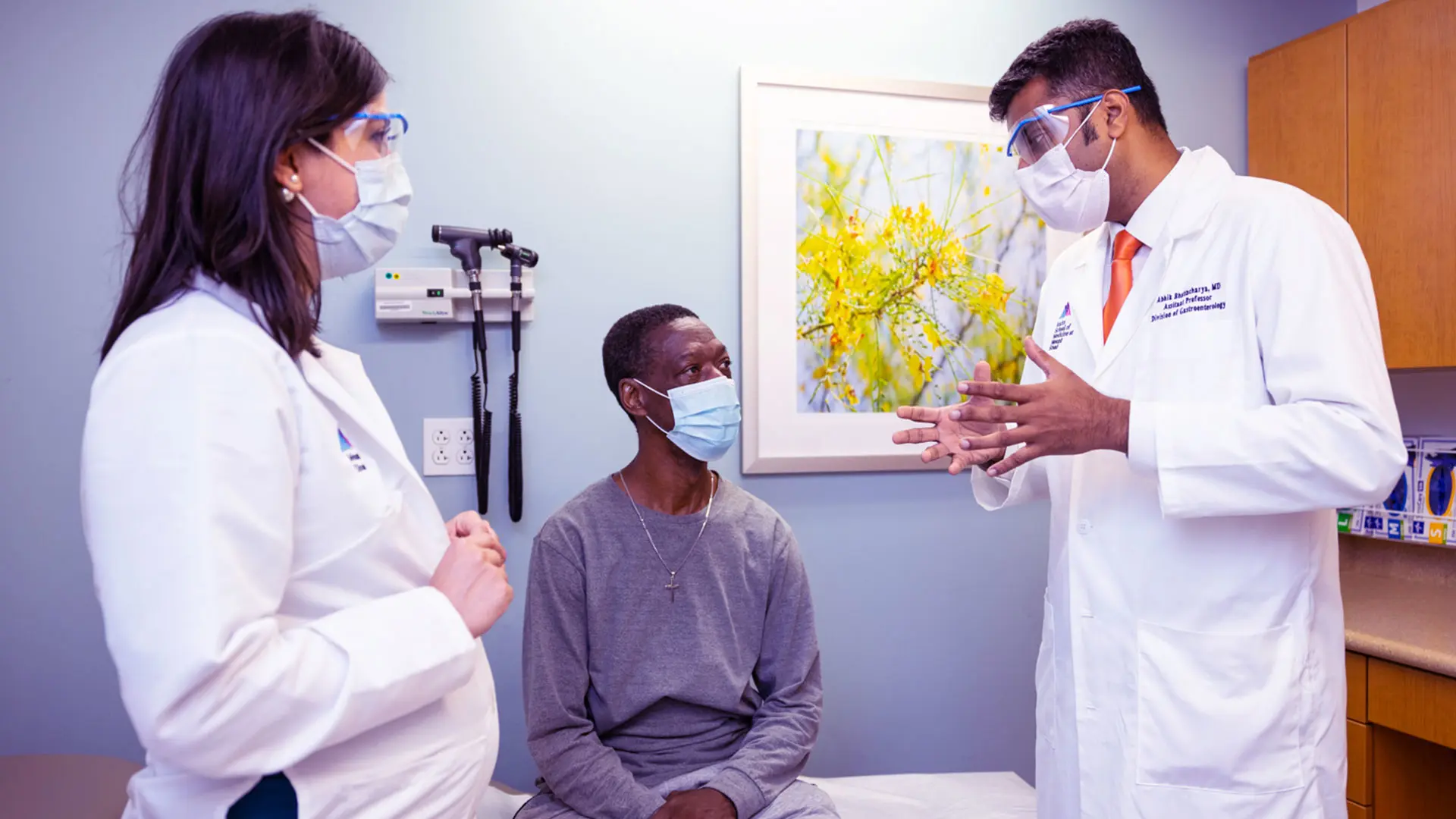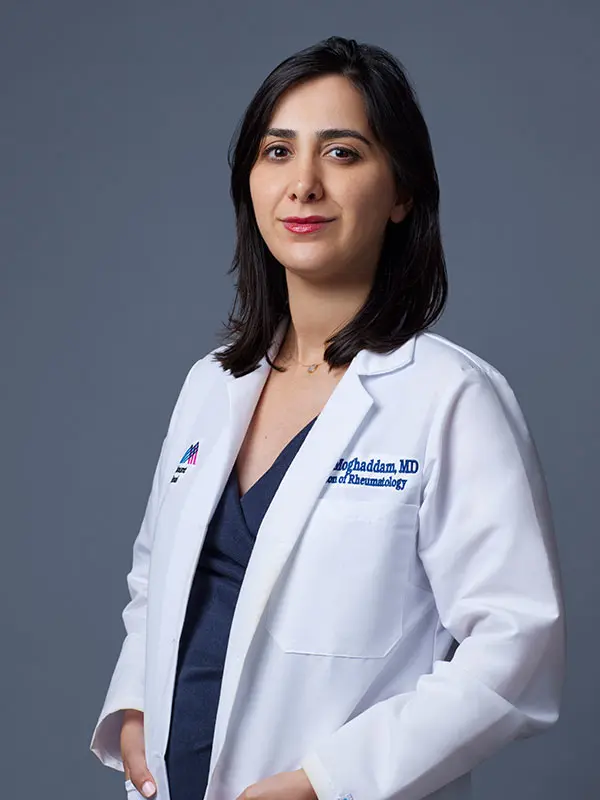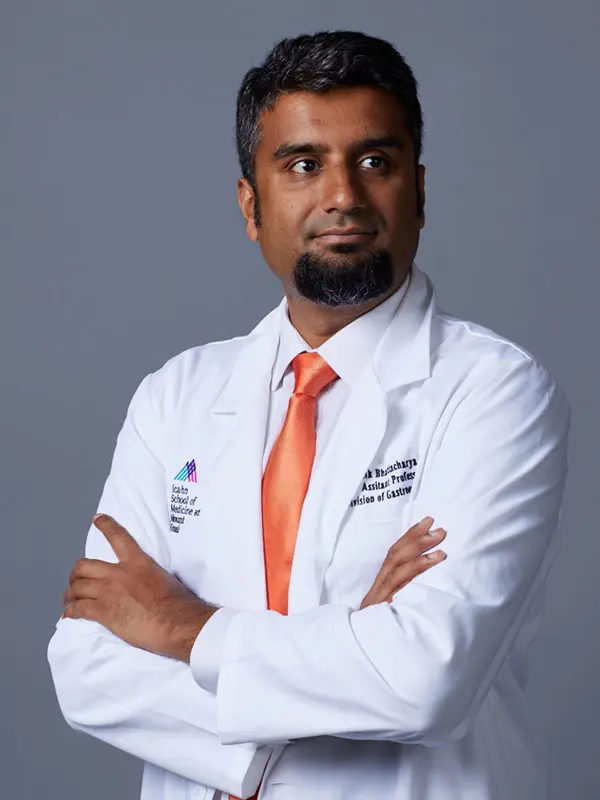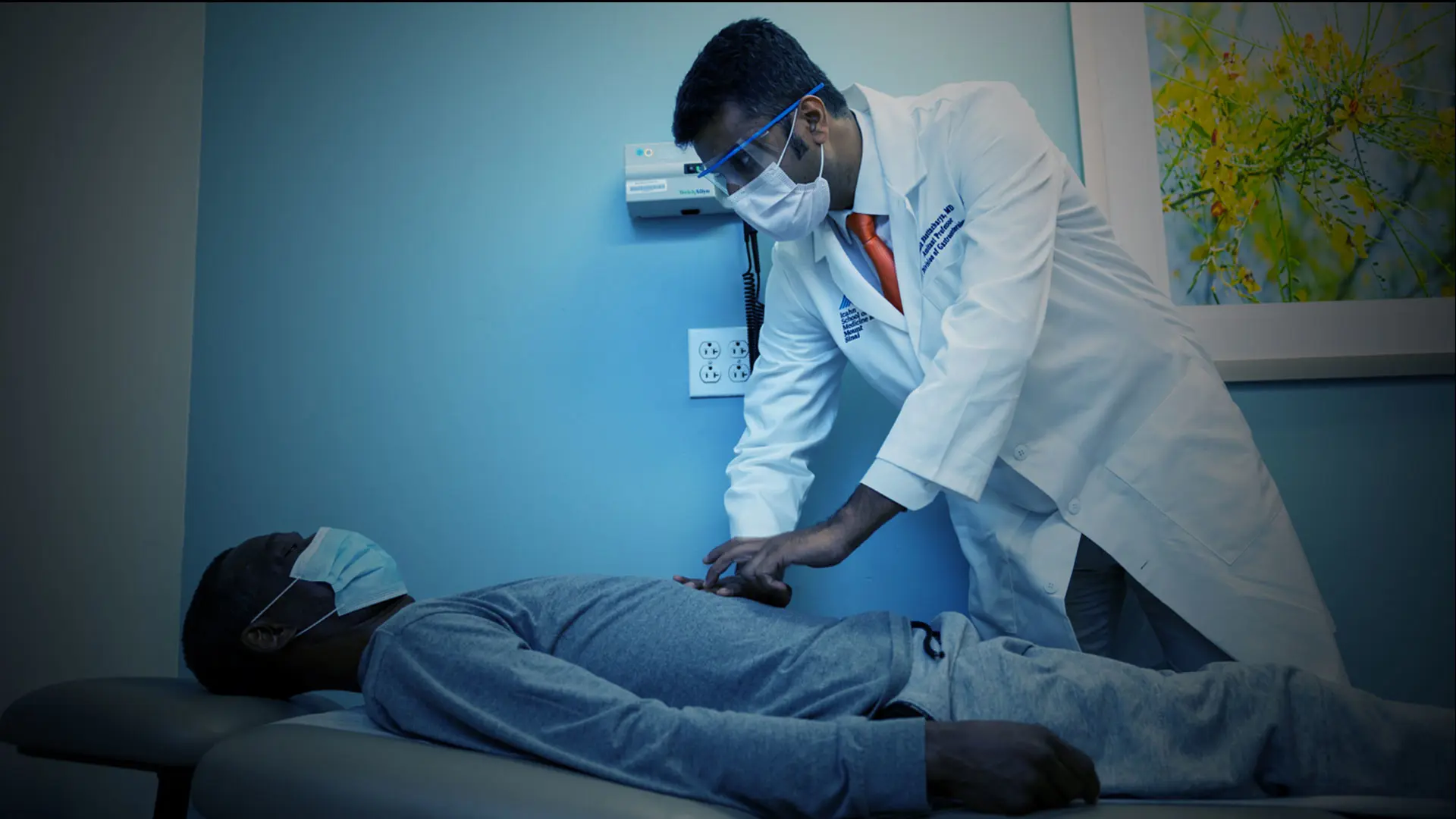While as many as 40 percent of inflammatory bowel disease (IBD) patients also have arthritis, research to understand the possible linkage between the two, or the most effective treatment, has been all but absent over the years. Now, a collaborative model between Gastroenterology and Rheumatology in the Department of Medicine at Mount Sinai is providing patients with entrée to a level of care few clinics in the world can offer, and researchers with a springboard for further investigation.
“Crohn’s disease and ulcerative colitis are bad enough, but when compounded by the joint manifestations of arthritis, the pain and morbidity can challenge even the strongest patients,” says Abhik Bhattacharya, MD, Assistant Professor of Medicine (Gastroenterology). “That’s why we decided to provide this population with the most informed and personalized care we possibly could by bringing IBD and arthritis specialists into a partnership that’s unique in the medical field.”
At the patient care level, these providers opened a combined clinic at Mount Sinai in February that sees patients with IBD and arthritis one day a month to offer convenient and coordinated care. “Patients love it because they don’t have to travel back and forth for scheduled visits to their doctors,” explains Bahar Moghaddam, MD, Assistant Professor of Medicine (Rheumatology), who manages the clinic with Dr. Bhattacharya. “And we as physicians love it because it allows us to practice cutting-edge medicine for our patients.”

Dr. Moghaddam and Dr. Bhattacharya with patient Frederick Paisley
Beyond clinical care, these integrated care patients could be the key to future research, providing a cohort to explore why people with IBD are so susceptible to arthritic pain affecting both small and large joints throughout the body. “The theory is that there is a proliferation of a certain kind of immune cell in both the intestines and the joints of people who have these inflammatory conditions,” observes Dr. Bhattacharya. “But we don’t have any hard evidence, and research is urgently needed to determine any commonalities, as well as the possible role of genetics in triggering both conditions.”
More intense research into the molecular and immunological underpinnings is expected to lead to more informed treatment. Among the questions that need to be answered are whether patients with IBD and joint complications do better or worse when taking biologic therapies, which have become so effective in recent years in managing the inflammation associated with Crohn’s disease and ulcerative colitis. “And if we do administer biologics to address both diseases, should they be at higher or lower doses than current usage, and do we need to monitor these patients more closely?” asks Dr. Bhattacharya. “We have no answers to these questions yet.”
For now, the Department of Medicine will continue to expand its IBD-arthritis clinic to provide and carefully observe the outcomes of its multidisciplinary approach to care. “In a matter of months, we’ve grown to more than 45 new patients who’ve come to us with a wide range of joint issues,” says Dr. Bhattacharya. “Another way we measure our success is the fact we’re getting referrals from not just Mount Sinai’s own pool of patients, but from IBD specialists and rheumatologists across the New York metropolitan area and the country.”
Featured

Bahar Moghaddam, MD
Assistant Professor of Medicine (Rheumatology)

Abhik Bhattacharya, MD
Assistant Professor of Medicine (Gastroenterology)
